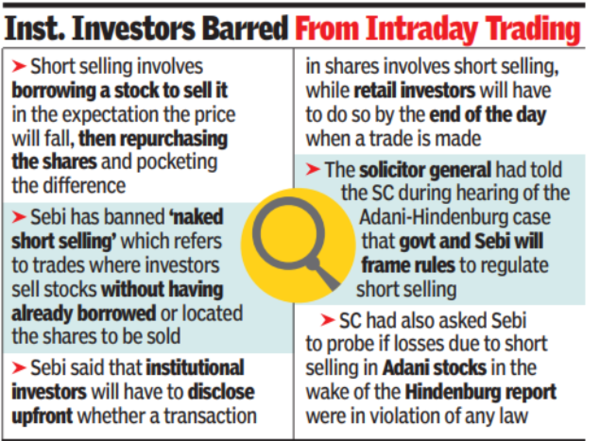The new rules come after Solicitor General Tushar Mehta had said during the hearing of the Adani-Hindenburg case in the top court that the Center and SEBI will frame rules to regulate short selling.
Sebi said institutional investors will have to disclose in advance whether the transaction in shares involves short selling or not, while retail investors will have to do so by the end of the trading day. Under the new framework, exchanges will have to disclose details before the start of the next day’s trading.

The regulator also said that institutional investors will not be allowed to trade intraday.
Short selling involves borrowing stock and selling it in the expectation that the price will fall, then repurchasing the shares and keeping the difference. SEBI has banned ‘naked short selling’, a practice prevalent in most developed markets. So-called naked short sales refer to trades where investors sell stocks without first borrowing or locating the shares to be sold.
SEBI allowed short selling in all stocks traded in the derivatives segment of the market. Derivatives trades can serve to curb price volatility in stocks that have substantial short selling positions. During the hearing of the Adani-Hindenburg case, it was revealed that around 12 institutions had made profits by short selling Adani Group shares.





